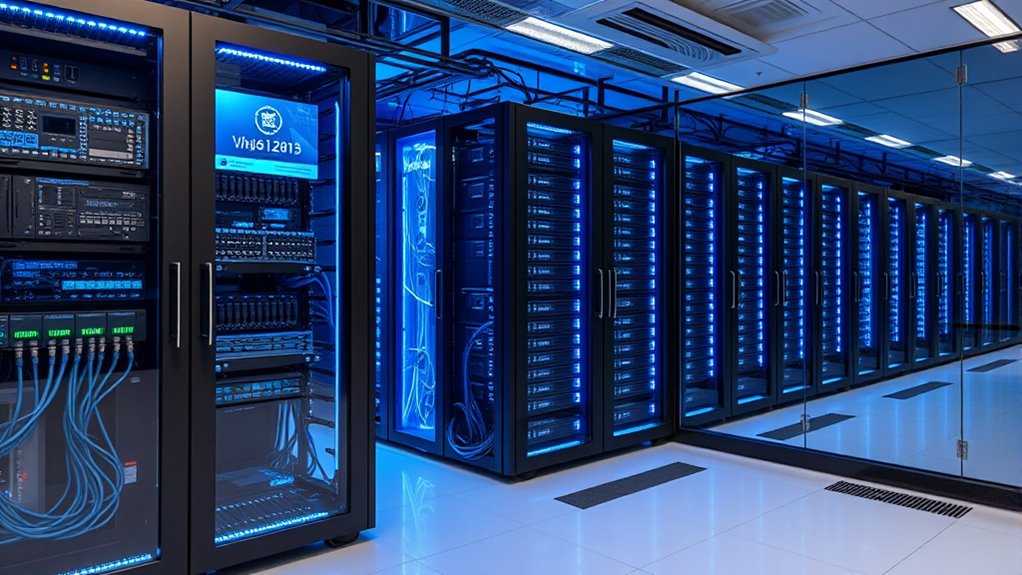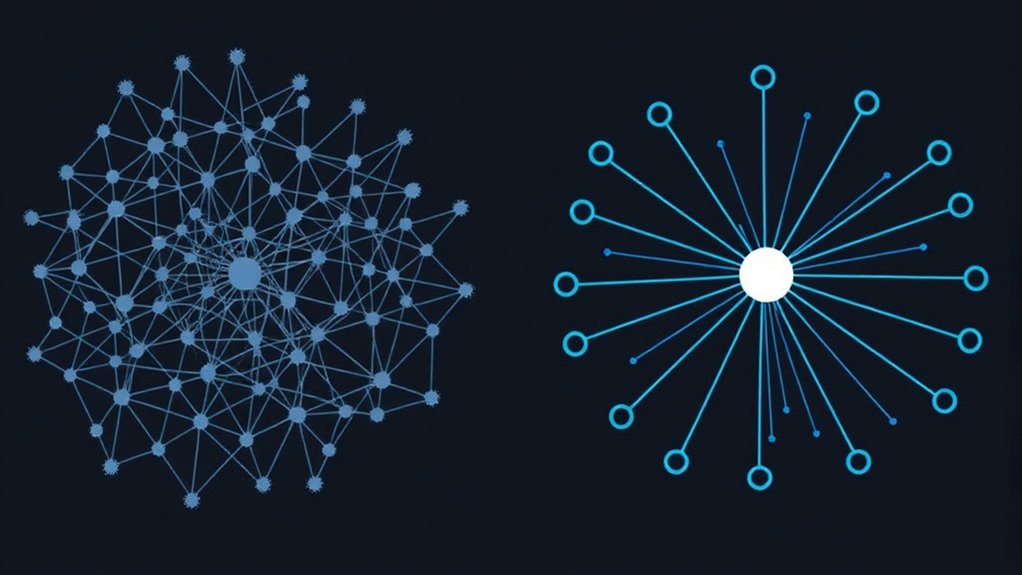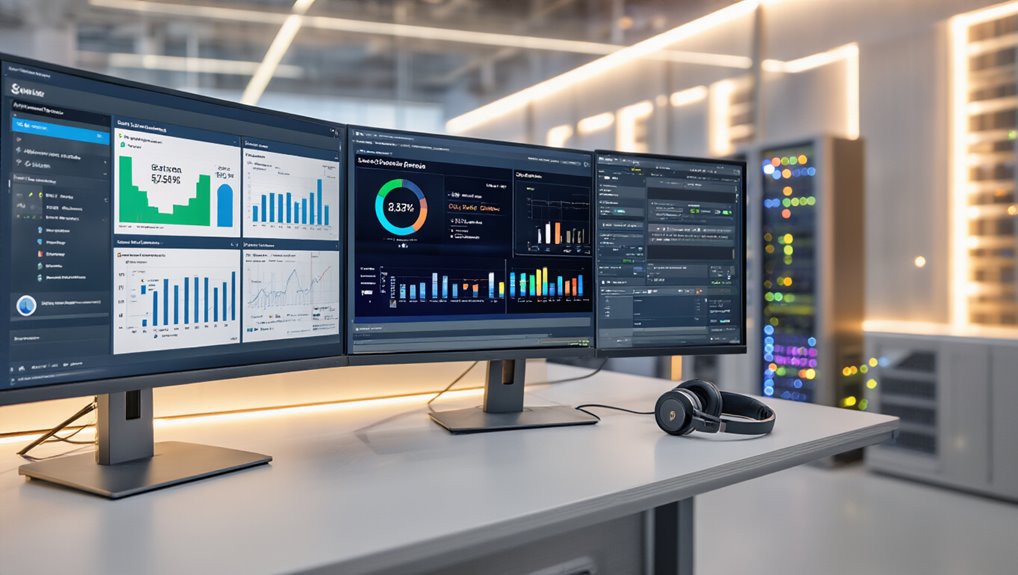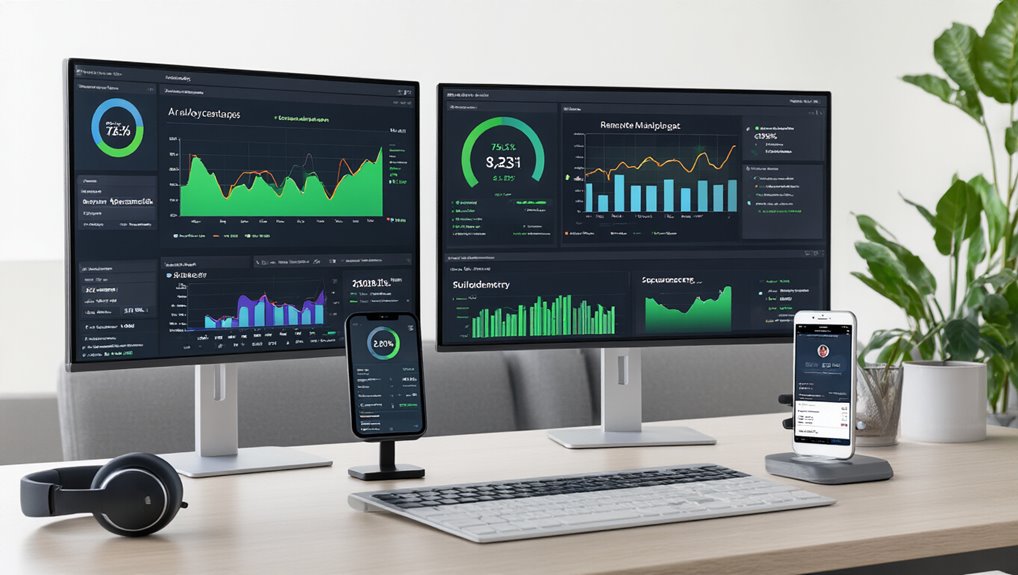System integrators play an essential role in modern business by combining diverse IT subsystems into cohesive solutions. They serve as technological orchestrators, ensuring seamless operation between hardware, software, and network components while optimizing business operations. These specialists conduct requirements analysis, implement solutions, and maintain integrated ecosystems across industries like retail, manufacturing, and defense. Their expertise helps organizations eliminate technology silos, reduce costs, and accelerate digital transformation. Understanding their full impact reveals how they drive competitive advantage in today’s digital landscape.

Nearly every modern business faces the challenge of integrating multiple technology systems to remain competitive in today’s digital landscape. To address this challenge, organizations turn to system integrators (SIs), professionals or firms that specialize in combining various IT subsystems into cohesive, unified solutions. These experts serve as technological orchestrators, guaranteeing that hardware, software, and network components work together seamlessly to support business operations.
System integrators perform several critical functions in modern enterprises. The discovery process begins with thorough requirements gathering and gap analysis to ensure optimal solutions. They analyze existing infrastructure to create efficient workflows, implement new solutions that connect disparate systems, and maintain the integrated technology ecosystem. Their expertise extends to coordinating with multiple vendors, testing system functionality, and guaranteeing data flows smoothly across platforms. The focus on ongoing support and maintenance ensures systems remain effective and scalable as business needs evolve.
System integrators serve as technological conductors, orchestrating complex IT systems to work in harmony while ensuring seamless data flow across business operations.
SIs also bridge the knowledge gap for organizations that lack specialized internal IT resources, providing valuable consulting and implementation services. The impact of system integrators on business operations is substantial and measurable. By eliminating technology silos and redundant systems, they help organizations reduce operational costs while improving efficiency. Modern EDI solutions enable seamless data exchange between trading partners, further enhancing operational efficiency.
SIs enable faster deployment of new digital platforms, critical for businesses seeking to accelerate their time-to-market. They also guarantee that integrated solutions comply with industry regulations and maintain robust security standards across all connected systems.
Different industries require specialized integration expertise. In retail, SIs focus on connecting point-of-sale systems with inventory management and e-commerce platforms. Manufacturing environments often need industrial integrators who understand specialized equipment and control systems.
Defense sector integrators must handle highly secure, mission-critical systems, while media industry SIs work with complex content management and distribution platforms. As technology continues to evolve, system integrators face ongoing challenges in managing increasingly complex environments.
They must constantly adapt to new technologies, guarantee data accuracy across integrated systems, and maintain security in interconnected environments. Despite these challenges, skilled system integrators remain essential partners for businesses seeking to optimize their technology infrastructure and maintain competitive advantage in the digital age.
Frequently Asked Questions
How Much Does It Typically Cost to Hire a System Integrator?
System integrator costs vary considerably based on project scope and complexity.
Small business projects typically range from $10,000 to $50,000, while mid-sized enterprise integration costs between $50,000 and $250,000.
Large-scale enterprise projects can exceed $500,000. Hourly rates range from $75 to $250, depending on expertise.
Annual maintenance fees usually account for 15-25% of initial project costs, with pricing models including fixed-price, time and materials, or hybrid arrangements.
What Qualifications Should I Look for When Choosing a System Integrator?
When selecting a system integrator, key qualifications should include:
- Bachelor’s degree in software engineering, computer science, or related fields
- Professional certifications like NICET Systems Software Integrator
- Proven experience managing end-to-end integration projects
- Strong technical skills in hardware, software, and networking
- Demonstrated communication abilities with diverse stakeholders
- Knowledge of cybersecurity and safety protocols
- Documented success with similar integration projects
How Long Does a Typical System Integration Project Take to Complete?
System integration projects typically take 8-12 weeks from contract to completion for standard implementations.
Simple integrations may require a minimum of 3 weeks, while complex projects can extend considerably longer.
The timeline depends on several factors:
- Project scope and complexity
- Number of systems being integrated
- Custom business rules required
- Resource availability
- Testing requirements
- Organizational readiness
These variables directly impact each phase’s duration, from requirements gathering through final deployment.
Can System Integrators Work With Legacy Systems and Outdated Technology?
System integrators specialize in working with legacy systems and outdated technology through various proven methods. They employ middleware solutions and custom APIs to bridge old and new platforms, while utilizing specialized data transformation tools to guarantee compatibility.
Their expertise includes:
- Risk assessment and mitigation strategies
- Documentation of legacy processes
- Implementation of security protocols
- Development of custom adapters
- Creation of virtualization solutions for aging applications
What Security Measures Do System Integrators Implement During Integration Projects?
System integrators implement thorough security measures throughout integration projects.
They employ data encryption protocols, multi-factor authentication, and secure VPN tunnels to protect sensitive information.
Key measures include regular security audits, network monitoring for breaches, and strict access controls.
Integrators also guarantee compliance with industry regulations like HIPAA and GDPR while maintaining detailed documentation of security protocols and system updates.









